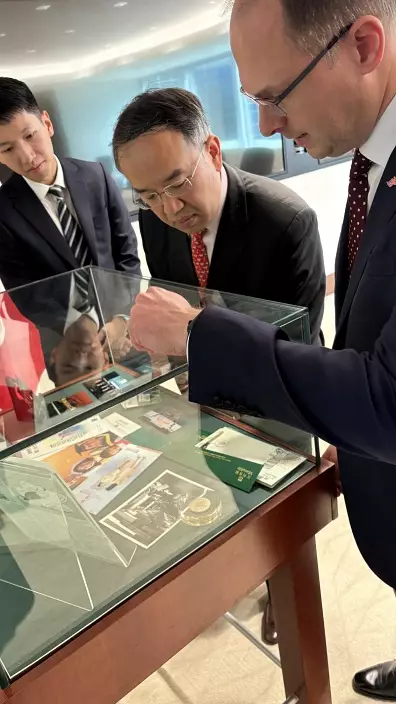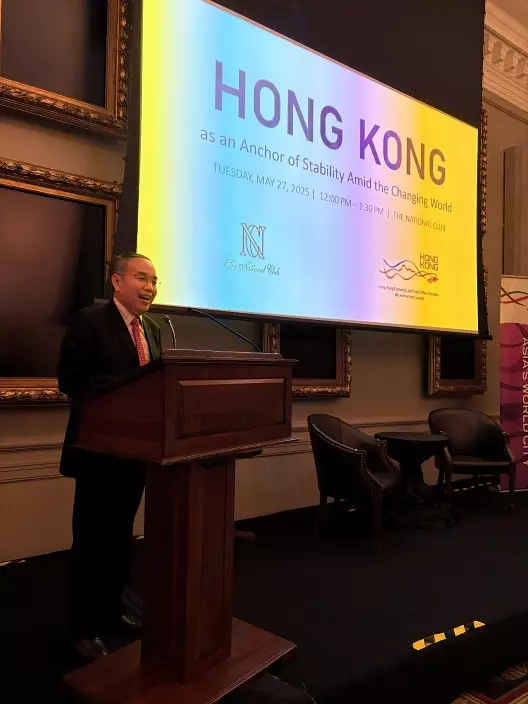Hong Kong’s Companies (Amendment) (No. 2) Ordinance 2025 which facilitates corporate re-domiciliation came into effect on May 23. Secretary for Financial Services and the Treasury Hui Ching-yu, made a timely visit to the headquarters of two insurance companies, Manulife and Sun Life, in Toronto, Canada, and lobbied them to redomicile to Hong Kong where both companies have significant operations.
The New Rules of the Game
Just days later, Manulife announced on the 6th of May that Manulife Life Insurance (International), upon approval from relevant regulatory authorities, will officially redomicile from Bermuda to Hong Kong starting in November this year under the Hong Kong government's newly introduced company re-domiciliation regime.

Manulife Life Insurance (International) will officially redomicile from Bermuda to Hong Kong starting in November.
The company stated that this decision reflects its firm confidence in Hong Kong's status as an international financial centre and demonstrates its commitment to providing better services to customers. All policyholders' policies and coverage will remain completely unchanged, with existing arrangements – including policy terms and conditions as well as contractual rights – remaining unaffected.
Mission Accomplished
Manulife indicated it will continue operating under the supervision of the Hong Kong Insurance Authority, maintaining high service standards. As the company strengthens its Hong Kong operations, customers can expect even higher-quality services and more innovative insurance solutions.
At the end of last month, Secretary for Financial Services and the Treasury Hui Ching-yu embarked on his visit to Canada. On May 25, while in Toronto, he visited two insurance companies headquartered in Canada with operations in Hong Kong, meeting with Manulife Financial's President and CEO Phil Witherington and Chief Financial Officer Colin Simpson, as well as Sun Life Financial's Vice President and Chief Financial Officer Tim Deacon and Vice President and Chief Strategy & Talent Officer Linda Dougherty.

Hui Ching-yu received a personal introduction from Manulife's President and CEO Phil Witherington (right) about promotional materials related to the company's Hong Kong operations over the years. (Government Information Services photo)
The Canadian Charm Offensive
During these meetings, Secretary Hui introduced the newly effective company re-domiciliation ordinance and lobbied them to consider redomiciling their companies to Hong Kong to enjoy related legal and tax conveniences, while also reducing compliance costs that companies must bear to meet dual regulatory systems.
Hui particularly mentioned that on the first day the company re-domiciliation regime took effect, an international insurance group immediately announced plans to redomicile to Hong Kong, fully demonstrating the regime's strong appeal for enterprises to enhance operational efficiency. Under the new mechanism, non-Hong Kong incorporated companies that meet requirements regarding corporate background, integrity, protection of members and creditors, as well as its solvency, can apply to redomicile to Hong Kong while preserving their legal corporate identity to ensure business continuity. After re-domiciliation, if companies face taxation on comparable profits in Hong Kong, the government will provide unilateral tax credits to eliminate double taxation.
Secretary Hui also noted at the time that Hong Kong has a solid foundation in investment and trade, making it absolutely an ideal location for global enterprises seeking insurance, reinsurance and risk management services, as well as establishing captive insurance companies. For insurance companies, Hong Kong represents a market with tremendous development potential.

Hui Ching-yu attended a business luncheon for financial leaders in Toronto, delivering a speech titled "Hong Kong as a Stable Foundation Amid Global Changes."
Additionally, during his time in Canada, Hui Ching-yu met with local financial sector representatives, Securities and Exchange Commission officials, and chamber of commerce representatives. He also met with Canada's Deputy Minister of Finance and federal senators, mentioning that Fitch, S&P, and Moody's – all three rating agencies – recently unanimously gave Hong Kong a "stable" rating outlook, reflecting Hong Kong's resilience to move forward steadily amid increasing global economic and financial uncertainty. He emphasized Hong Kong's efficient policy mechanisms and robust financial markets as reliable partnership assets for Canada under the current uncertain global political and economic landscape.
Why This Matters
An expert commented that Manulife's decision to redomicile to Hong Kong demonstrates the success of senior SAR government officials visiting overseas to "tell Hong Kong's story well" and attract enterprises. Under the new mechanism, more companies headquartered overseas are expected to redomicile to Hong Kong, further consolidating Hong Kong's leading position as an international financial centre.
Ariel
** The blog article is the sole responsibility of the author and does not represent the position of our company. **







